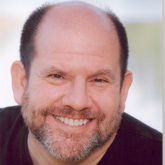David Van Nuys talks with Dr. Tatkin, who "taught Mindfulness to patients and staff. He was trained in Vipassana meditation by Shinzen Young, Ph.D., and was an experienced facilitator in Vipassana. He was also trained by David Reynolds, Ph.D., in two Japanese forms of psychotherapy, Morita and Naikan."
Shrink Rap Radio #179 - A Psychobiological Approach to Couples Therapy
Stan Tatkin, PsyD, MFT, founder/developer of A Psychobiological Approach To Couples Therapy™ integrates neuroscience, infant attachment, arousal regulation, and therapeutic enactment applied to adult primary attachment relationships. He maintains a practice in Calabasas, California, and runs a bi-weekly clinical study group for medical and mental health professionals (www.ahealthymind.org/csg) and training programs in Seattle and San Francisco.
Dr. Tatkin received his early training in developmental object relations (Masterson Institute), Gestalt, psychodrama, and family systems theory. His private practice specialized for some time in the treatment of adolescents and adults with personality disorders. Over the last decade, his interests branched out toward psycho-neurobiological theories of human relationship, integrating principles of early mother-infant attachment with adult romantic relationships. He speaks to professional audiences on subjects of couples therapy and preventative psychotherapy through early intervention with infants, children and their parents. He has published several articles on the psychobiology of couples’ therapy and is currently training therapists on his unique approach to couples work using attachment theory, neuroscience, and principles of arousal and affect regulation.
Dr. Tatkin was a primary inpatient group therapist at the John Bradshaw Center where, among other things, he taught Mindfulness to patients and staff. He was trained in Vipassana meditation by Shinzen Young, Ph.D., and was an experienced facilitator in Vipassana. He was also trained by David Reynolds, Ph.D., in two Japanese forms of psychotherapy, Morita and Naikan.
Dr. Tatkin was clinical director of Charter Hospital’s intensive outpatient drug and alcohol program, and is a former president of the California Association of Marriage and Family Therapists, Ventura County chapter.
In addition to his private practice, he teaches and supervises first through third-year family medicine residents at Kaiser Permanente, Woodland Hills, through which he is an assistant clinical professor at the UCLA David Geffen School of Medicine, Department of Family Medicine. He is also adjunct faculty for Antioch University, Santa Barbara Graduate Institute, and California Lutheran University.
Dr. Tatkin is a veteran member of Allan N. Schore’s study group. He has trained in the Adult Attachment Interview through Mary Main and Erik Hesse’s program out of University of California, Berkeley. He is a contributing editor on a book with Allan Schore entitled, Reader’s Guide to Intersubjective Neurobiology, for W.W. Norton & Company due out in Summer 2008 and is currently co-writing Love and War in Intimate Relationships with Marion Solomon for W.W. Norton due out in Summer 2009.
I have these discount codes for you!: GoDaddy, PetMeds, Budget.com car rentals and Brookstone.
A psychology podcast by David Van Nuys, Ph.D.
Standard Podcast [1:08:04m]: Hide Player | Play in Popup | Download

Yoga (Application) which was based on the control of the body physically and implied that a perfect control over the body and the senses led to knowledge of the ultimate reality. A detailed anatomical knowledge of the human body was necessary to the advancement of yoga and therefore those practising yoga had to keep in touch with medical knowledge. (Romila Thapar, A History of India, volume one).
ReplyDeleteI suggest : Mind and brain are two distinct things. Brain is anatomical entity whereas mind is functional entity. Mind can be defined as the function of autonomic nervous system (ANS). It is claimed that mind can be brought under conscious control through the practice of meditation. But how? ANS is largely under hypothalamic control which is situated very close to optic chiasma (sixth chakra or ajna chakra). Protracted practice of concentration to meditate at this region brings functions of ANS say mind under one’s conscious control.
ANS is further divided into parasympathetic nervous system (PSNS) and sympathetic nervous system (SNS). On the basis of these facts I have discovered a mathematical relationship for spiritual quotient (S.Q.). Spiritual Quotient can be expressed mathematically as the ratio of Parasympathetic dominance to Sympathetic dominance. PSNS dominates during meditative calm and SNS dominates during stress. In this formula we assign numerical values to the physiological parameters activated or suppressed during autonomic mobilization and put in the formula to describe the state of mind of an individual and also infer his/her level of consciousness.
Protracted practice of meditation under qualified guidance will help to manage all sort of psychological problems.
Emotional Quotient can also be expressed mathematically as the product of I.Q. and Wisdom Factor.
E.Q. stands for Emotional Quotient. An intelligent person may not be wise. But a wise man will always be intelligent. An intelligent person having certain level of positive emotions can be said as wise. An intelligent person lacking wisdom will turn autocrat. A wise man will always be a democrat who respects others existence.
If Mental Age of I.Q. can be quantified then Wisdom can also be quantified, of course, comparatively with more efforts.
Anirudh Kumar Satsangi